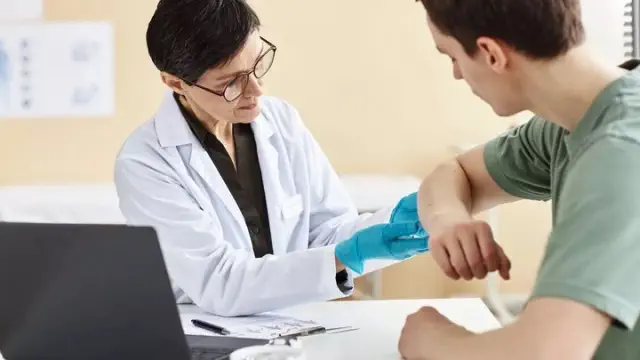These slight changes might indicate the presence of skin cancer, which impacts over 170,000 individuals in the UK annually. Below are the symptoms to be vigilant about.

View pictures in App save up to 80% data.
A skin cancer expert is urging people to be aware of five vital changes to their skin - as spotting them early on can be the difference between life and death.
Skin cancer affects over 170,000 people in the UK each year and, as with any disease, recognising the symptoms early on is crucial for getting the right treatment. Dr Emily Alfonsi, a skin cancer specialist from the Shade Skin Clinic, stresses that even the smallest changes to the skin should not be ignored.
She explained: "Your skin is your body's largest organ, and it tells a story about your overall health. Even minor changes can indicate something worth investigating. Early detection is critical when it comes to skin cancer and other conditions."
As per Dr. Alfonsi, there are five key skin changes that should be monitored:
Atypical moles or skin lesions
Any mole that changes in size, shape, or colour - or develops an irregular border - should be checked immediately, reports the Express.
Chronic dry or itchy areas
These could be harmless but, if the symptoms persist, they may indicate eczema or even skin lymphoma.
Chronic wounds that do not heal
A wound that fails to heal within a two-week period could indicate a potential risk of basal or squamous cell carcinoma.
Abrupt changes in skin color
Unexplained redness, yellowing, or dark patches on the skin may indicate potential health concerns such as liver disorders or melanoma.
Emerging developments
Be vigilant for any lumps or elevated spots that emerge unexpectedly, particularly if they show signs of bleeding or develop a crust.
Dr. Alfonsi emphasizes that when detected early, skin cancer is among the most treatable forms of cancer. Recent studies show that more than 90 percent of cases can be successfully managed if identified in the early stages, underscoring the critical need for routine self-exams and professional screenings.
Dr. Alfonsi emphasizes the importance of conducting monthly self-examinations at home, highlighting the necessity of being vigilant about areas that can often be overlooked, such as the scalp, behind the ears, and under the nails. She stated, "Should you observe anything out of the ordinary, it’s crucial to reach out to a specialist. A prompt consultation can provide reassurance or even be life-saving."
The NHS informs that UV light, which sunbeds and sunlight emit, is a predominant cause of non-melanoma skin cancers. When outdoors, taking certain measures can diminish the likelihood of developing this illness.










